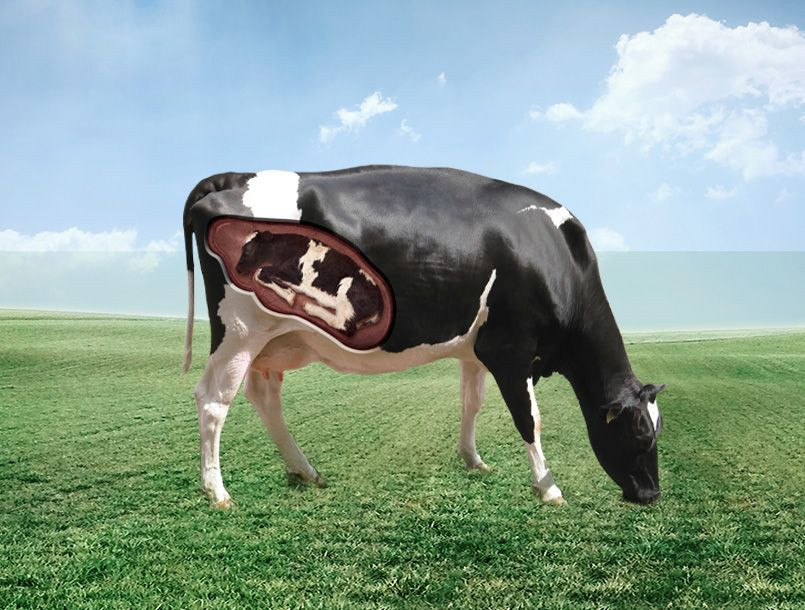Are Your Trace Element Supplementation Investments the Right Fit?
Whether your main enterprise is beef or dairy, it is a well-documented fact that ensuring the optimum trace element status in your herd is critical for both productivity and fertility.
However, it can be difficult to differentiate between the wide range of nutritional products available; from free-access systems such as licks and blocks, to injections, feed supplements and boluses. To shed some light on the issue, one of Bimeda's Professional Services Veterinarians, Rachel Mallet, looked at some of the key advantages and disadvantages of the various options.
"While the importance of ensuring optimum trace element levels is widely understood, I find that it is more challenging to source information on the differences between approaches to support decision making.
For some trace elements, peaks and troughs of supplementation can have a negative impact on fertility, so it is vital that farmers choose a supplementation method that can be relied on to provide the same levels of trace elements every single day where a deficiency exists for those minerals. "
Oral Drenches
Drenches can seem like a cheap and convenient option. However, for trace elements which cannot be stored in the body, such as cobalt or iodine, they are not appropriate to treat deficiencies, as a form of continuous supplementation must be provided. This means that if you are addressing a cobalt deficiency, for example, via a drench, any cobalt that the body cannot use will simply be passed out in the faeces, and the animal will have inadequate supply until drenched again making it a false economy for the farmer. Frequent dosing is required, which increases costs to the farmer – both in terms of the drench itself and labour required," she said.
Free-Access Systems
Where a need to supplement trace elements has been established, we need to ensure that all animals receive an amount of trace elements which is compatible with their daily requirements. Too much of a trace element can prove toxic; too little and the deficiency will not be addressed. Furthermore, variable intakes can have a negative impact on fertility. Unfortunately, the free-access lick and block systems cannot ensure each animal receives the same level of trace elements. In fact, an independent study (McDowell, 1992) highlighted that intake between animals is extremely variable, with some consuming nothing and others consuming excessive quantities.
Pasture Dressing And Water Supplementation
Like blocks and licks, these forms of supplementation suffer from variable intakes. This is problematic as some animals may consume trace elements in excess while some may not consume enough.
Injections
Injections can be suitable for targeted administration in conjunction with the advice of your vet. This is particularly important where you need to rapidly address a deficiency such as white muscle disease, caused by selenium deficiency.
In-Feed Supplementation
Trace elements can be provided by the provision of TMR, concentrates or bag minerals. Often these are specified based on 'averages' or 'common requirements', as opposed to being based on what has been determined as deficient and required specifically on the individual
farm. Ideally these mixes would be prepared, based on an investigation into the animals' trace element status and requirements although it can add significantly to the cost of production.Trace Element Boluses
Boluses provide a convenient, cost-effective and controlled method of trace element supplementation. A good quality bolus will provide the same amount of trace elements every single day for the duration of the bolus. Their long-lasting nature is also highly convenient and reduces labour costs, as repeated treatments are not required during the life of the bolus.
It is also important to ensure that any form of trace element supplementation is only supplied where a need to do so has been identified, through appropriate diagnostic testing. I recommend working with your vet, animal health advisor or nutritionist prior to providing any form of trace element supplementation.Soluble Glass Trace Element Boluses
Bimeda's Cosecure and CoseIcure are made of a unique soluble glass which dissolve at a controlled and constant rate over the course of several months, providing sheep with trace elements at levels consistent with daily requirements.
Cosecure, delivers ionic copper, ionic cobalt and selenium.
CoseIcure delivers ionic copper, ionic cobalt, selenium and iodine.
To find your local stockist of the Bimeda Cosecure, CoseIcure and ZincoIsel boluses, call Bimeda on 01248 725 400
